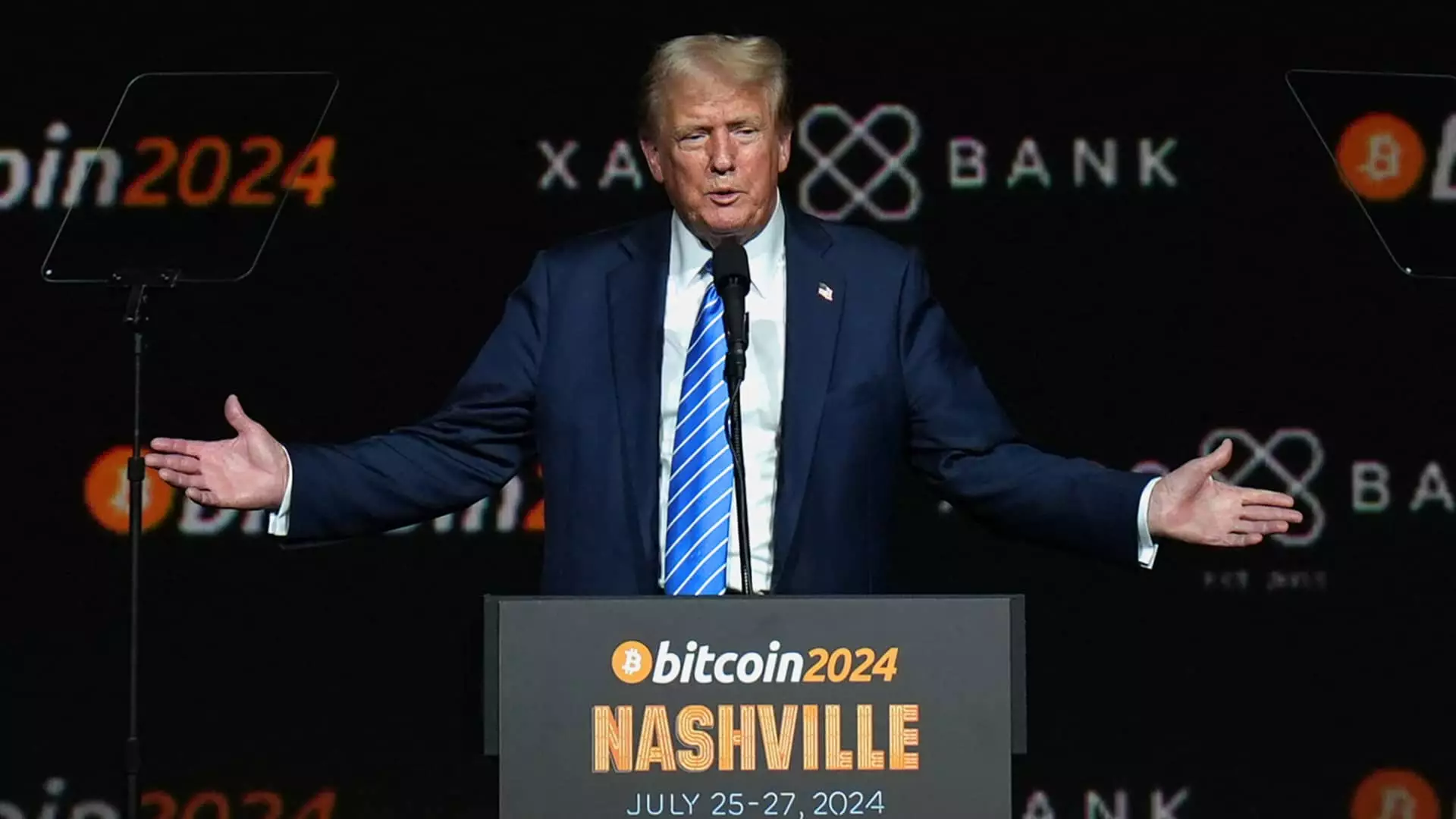In the ever-evolving landscape of cryptocurrency, former President Donald Trump’s foray into this digital realm through his project, World Liberty Financial (WLF), marks a significant moment. Recently, WLF published a detailed 13-page document titled the “World Liberty Gold Paper,” shedding light on its operations and token allocation strategy. The implications of the document are profound, reflecting not only Trump’s ambitions in the crypto space but also the financial benefits potentially accruing to him and his family.
Central to this undertaking is the allocation of a staggering 22.5 billion “$WLFI” tokens to the Trump family, equating to a projected value of approximately $337.5 million at the token’s initial pricing. This figure raises eyebrows about the intertwining of personal wealth and business in an arena that many view as speculative and volatile, raising ethical questions given Trump’s status as a political figure.
The release of the WLFI token on Tuesday signified a pivotal moment for World Liberty Financial, which aims to amass $300 million at a staggering $1.5 billion valuation. However, early sales figures show the project has only secured $12.9 million, casting doubt on its initial projections and potential sustainability. Unlike traditional financial systems, cryptocurrency projects often hinge on speculative interest, and WLF’s ability to generate traction will be critical in the coming months.
A remarkable feature of the financial structure outlined in the paper is that Trump’s family assumes no liability for the project. The document explicitly states that neither Trump nor his relatives serve as directors, employees, or managers of WLF, thus positioning themselves to benefit financially without bearing the risks typical in entrepreneurial ventures. This disassociation raises questions concerning accountability and the ethical implications of benefiting from a project that profits from their enduring celebrity.
The potential profit-sharing structure is notably skewed in favor of a Delaware entity linked to Trump, which is set to receive a whopping 75% of net revenues. This places substantial financial power in the hands of a singular entity while leaving 25% of net revenues to a management group that has connections to other crypto enterprises, some of which have faced scrutiny.
The dynamics surrounding World Liberty Financial reveal intertwining relationships among its founders and affiliates. For instance, Axiom Management Group (AMG), a local Puerto Rican LLC, holds foundational rights to a significant portion of WLF’s revenue, while also earmarking half of its rights to WC Digital Fi, an affiliate associated with Trump’s financial confidant, Steve Witkoff. The connections among these individuals raise potential concerns over conflicts of interest and nepotism in crypto ventures where transparency is paramount.
Moreover, the relatively obscure backgrounds of some co-founders, such as Chase Herro and Zachary Folkman, whose prior endeavors have included companies that appear less reputable, challenge the credibility of WLF. These associations may detract from the trust necessary to attract investors in a market already plagued by skepticism over the legitimacy of many cryptocurrency projects.
As World Liberty Financial ventures into the cryptocurrency market, it must navigate the murky waters of regulatory oversight. Cryptocurrency remains an environment susceptible to fraud, manipulation, and scams, casting a shadow over ventures with even the most well-intentioned foundations. The fine print indicating that token distribution amounts are subject to change only adds layers of uncertainty, particularly for investors evaluating the risk versus reward of engaging with WLF.
As the political landscape heats up with the ongoing presidential race, the distinction between Trump’s political aspirations and his financial pursuits in the crypto realm will come under increased scrutiny. The assertion that WLF is “not political” seems at odds with Trump’s pervasive influence and the potential for political capital to drive interest in the project.
World Liberty Financial embodies a complex intersection of cryptocurrency, personal ambition, and political intrigue. As it attempts to establish itself in the cryptocurrency landscape, potential investors and the public must remain vigilant. The intricate financial arrangements surrounding the venture highlight a wave of modernization in the political fundraising space that could redefine the boundaries of ethical business practices.
As the crypto landscape matures, the efficacy of ventures like World Liberty Financial will be tested not just in terms of profitability but also in accountability, transparency, and ethical governance. The road ahead for Trump’s crypto ambitions remains fraught with challenges, yet also ripe with potential surprises that may shake the foundations of both the political and financial worlds.

